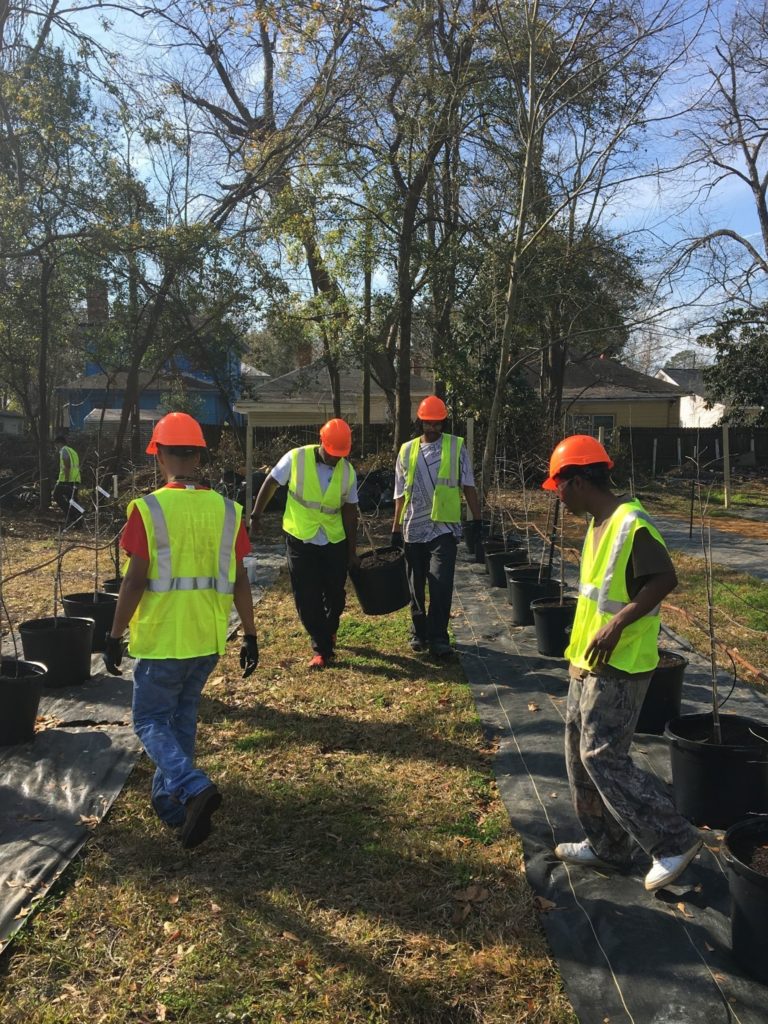Posts by asap1
Mentorship Spotlight: Entering Adaptation with Confidence
Mentee Lucienne Cross works in climate adaptation, stakeholder engagement, and disaster risk reduction. She currently works for Miyamoto International, an international disaster management consulting firm. Previously, Lucienne worked on adaptation and conservation throughout the Caribbean with a focus on community- and nature-based solutions to the impacts of climate change. Mentor Beth Stys is an Associate…
Read MoreServing at the Nexus of State and Local Climate Planning
By: ASAP Member Miles Gordon The California Adaptation Planning Guide, a state-produced resource for local governments and regional planning agencies who want to undertake climate adaptation planning in their respective jurisdictions, has been in the midst of a two-year update process since 2018 and is set to be transmitted to the general public in early…
Read MoreMentorship Spotlight: Creativity in Research and Planning
Mentee Katy Barlow is the Restoration Manager for The Nature Conservancy’s (TNC) Central Appalachians Program. The program’s mission is to protect and manage the climate-resilient lands of the Central Appalachian mountains with nature-based solutions. In her position, Katy works with forest science researchers and restoration practitioners to apply science outcomes at scale through demonstration of…
Read MoreASAP Members Collaborate to Launch Policy Campaign
By: Miles Gordon, ASAP Member Over the past two weeks, I have been working as part of a group of ASAP members to plan and execute an extensive messaging campaign to urge our federal representatives to include climate adaptation and resilience investments in upcoming federal coronavirus relief and infrastructure bills. With a new round of…
Read MoreASAP’s Response to COVID-19: Adaptive Management
Written by Beth Gibbons, ASAP’s Executive Director In early 2019 a sign appeared on the wall of ASAP’s modest office building. It reads, “We Will Figure It Out”. When it appeared we laughed at how appropriate it felt, given how many times a day our team sat down to think through a new challenge, be…
Read MoreResilient DC: A Strategy to Thrive in the Face of Change
DC is boldly moving their resilience strategy forward. After two years of iterative engagement with residents, the capital city’s unique approach includes one of our favorite topics: individual resilience! Check out the Resilient DC report for the nitty gritty on resilience in the nation’s capital city.
Read MoreFayette and Kanawha Counties Improve CRS Ratings
West Virginia Division of Homeland Security and Emergency Management (DHSEM) recently recognized the counties of Fayette and Kanawha in their efforts towards fostering more disaster-resistant communities. These efforts led to the counties’ Community Rating System (CRS) classes to improve, which resulted in flood insurance premium reductions through the National Flood Insurance Program (NFIP).
Read MoreGreater Miami Resilient305 Strategy Released
This past month in Southeast Florida, Miami-Dade County, an ASAP organizational member, alongside the City of Miami and the City of Miami Beach released their Resilient305 Strateg. The Resilient305 Strategy will act as a guide for the Greater Miami area and the Beaches’ climate resilience challenges, touching on topics from rising sea levels to public health and affordable housing.…
Read MoreActionable Science Case Study: Modeling Forest Thinning Effects on Water Yield for the Four Forest Restoration Initiative
Severe drought and wildfires in the Southwest are causing tree die-offs. The Nature Conservancy, through the USFS Four Forest Restoration Initiative, is testing and evaluating new approaches to forest management in the ponderosa pine forests and watersheds around Phoenix. This project, which has demonstrated short term benefits for river flow to the Salt-Verde watershed is just one…
Read MoreRestorative Green Infrastructure in the South
Trees are the cornerstone of Savannah, GA’s green infrastructure system. With increases in population and overall city growth, the number of trees and tree canopy cover has drastically decreased. In an effort to restore Savannah’s green canopy, renew several marginalized communities, and reduce stormwater runoff and flooding events, Savannah’s Office of Sustainability and their partners launched a…
Read More
